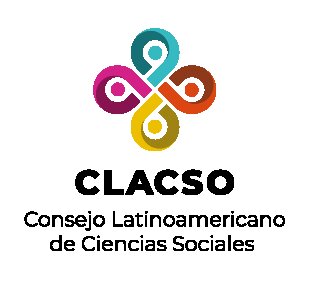Authors
Abstract
Objective: The objective of this article is to conduct a review of the fundamentals related to key aspects of digital policy and its governance mechanisms. Methodology: The hermeneutic ethodology has been chosen in order to qualitatively approach the topic, based on bibliographic analysis. Results: The mechanisms and processes inherent to digital governance at micro and macro levels and their influence in the world are described as well as the development of digital policies applied to the field of education. Conclusion: The opportunities and difficulties of developing multilevel governance systems based on the application of digital infrastructures and the consolidation of urban technological ecosystems are discussed.
Keywords:
References
Akcil, U., Altinay, Z. & Altinay, F. (2016). Assessing the Effects of Managers in the Digital Age on the Management Process of Digital Citizenship Roles. The Anthropologist, 23(1-2), 209-217. doi: 10.1080/09720073.2016.11891943.
Alper, M. & Goggin, G. (2017). Digital technology and rights in the lives of children with disabilities. New Media and Society, 19(5), 726-740. doi: 10.1177/1461444816686323.
Bannister, F. (2017). In Defence of Bureaucracy: Governance and Public Values in a Digital Age. Beyond Bureaucracy, 27-47. Doi: 10.1007/978-3-319-54142-6_3.
Barassi, V. (2019). Datafied Citizens in the Age of Coerced Digital Participation. Sociological Research Online. Doi: 10.1177/1360780419857734.
Barns, S. (2016). Mine your data: open data, digital strategies and entrepreneurial governance by code. Urban Geography, 37(4), 554-571. doi: 10.1080/02723638.2016.1139876.
Barns, S., Cosgrave, E., Acuto, M. & Mcneill, D. (2016). Digital Infrastructures and Urban Governance. Urban Policy and Research, 35(1), 20-31. doi:10.1080/08111146.2016.1235032.
Barreiro, B. (2018). How Can China Influence the Transatlantic Governance of Cultural Products in the Digital Age? The Journal of World Investment & Trade, 19(3), 444-474. doi: 10.1163/22119000-12340096.
Bejou, D. & Bejou, A. (2016). Shared Governance: The Key to Higher Education Equilibrium. Journal of Relationship Marketing, 15(1-2), 54-61. doi: 10.1080/15332667.2015.1091630.
Bellanova, R. (2016). Digital, politics, and algorithms. European Journal of Social Theory, 20(3),
329-347. doi: 10.1177/1368431016679167.
Bianchi, I. S., & Sousa, R. D. (2016). IT Governance Mechanisms in Higher Education. Procedia Computer Science, 100, 941-946. doi: 10.1016/j.procs.2016.09.253.
Botchway, E., Boateng, E. & Kwofie, T. (2016). Benefits of e-governance implementation in physical infrastructure development at the local government level. Electronic Government, an International Journal, 12(4), 395-405. doi: 10.1504/eg.2016.080441.
Choi, M. (2016). A Concept Analysis of Digital Citizenship for Democratic Citizenship Education in the Internet Age. Theory & Research in Social Education, 44(4), 565-607. doi:10.1080/00933104.2016.1210549.
Clarke, A., Lindquist, E. & Roy, J. (2017). Understanding governance in the digital era: An agenda for public administration research in Canada. Canadian Public Administration, 60(4), 457-475. doi: /10.1111/capa.12246.
Constantinides, P., Henfridsson, O. & Parker, G. (2018). Introduction-Platforms and Infrastructures in the Digital Age. Information Systems Research, 29(2), 381-400. doi:10.1287/isre.2018.0794.
Cushing, A. & Shankar, K. (2018). Digital curation on a small Island: a study of professional education and training needs in Ireland. Archives and Records, 40(2), 1-18. Doi:10.1080/23257962.2018.1425135.
da Silva, C., Ribeiro, Q., Soares, M. & do Nascimento, R. (2019). ICT governance: A view of adoption of best practices in enterprises of sergipe state. ACM International Conference Proceeding Series. Doi: 10.1145/3330204.3330268.
Decuypere, M. (2016). Diagrams of Europeanization: European education governance in the digital age. Journal of Education Policy, 31(6), 851-872. doi: 10.1080/02680939.2016.1212099.
De Gier, J. (2018). IT Governance of Dutch Municipalities and Digital Information Management. New Review of Information Networking, 23(1-2), 36-46. doi:10.1080/13614576.2018.1537798.
Echalar, A. e Peixoto, J. (2017). Programa Um Computador por Aluno: o acesso às tecnologias digitais como estratégia para a redução das desigualdades sociais. Ensaio: Avaliação e Políticas Públicas em Educação, 25(95), 393-413. doi: 10.1590/s0104-40362017002501155.
Emejulu, A. & McGregor, C. (2016). Towards a radical digital citizenship in digital education. Critical Studies in Education, 60(1), 1-17. doi: 10.1080/17508487.2016.1234494.
Evans, A. & Gomes, R. (2017). The role of digital literacy in citizens’ adoption of digital public services: The Portuguese case. Proceedings of the European Conference on e-Government, ECEG,71-78.
Felix, R., Rauschnabel, P. & Hinsch, C. (2017). Elements of strategic social media marketing: A holistic framework. Journal of Business Research, 70, 118-126. doi: 10.1016/j.jbusres.2016.05.001.
Fernandez, S. (2019). Making space in higher education: disability, digital technology, and the inclusive prospect of digital collaborative making. International Journal of Inclusive Education, 1-16. doi: 10.1080/13603116.2019.1610806
Fischer, R. & Malan, B. (2019). The Development of the Digital Wellness Toolkit. Association for Computing Machinery, 3(5), 329-337. doi: 10.1145/3326365.3326408.
Flyverbom, M., Deibert, R. & Matten, D. (2019). The governance of digital technology, big data, and the internet: New roles and responsibilities for business. Business & Society, 58(1), 3-19. doi: 10.1177/0007650317727540.
Fuente, C. (2017). Vulnerable publics and digital empowerment: The challenge of an e-inclusive society. Profesional de la Información, 26(1), 5-12. doi: 10.3145/epi.2017.ene.01.
Giannone, D. & Santaniello, M. (2018). Governance by indicators: the case of the Digital Agenda for Europe. Information, Communication & Society, 1-14. Doi:10.1080/1369118x.2018.1469655.
Gibson, T. (2019). Digital humanities, libraries, and collaborative research: New technologies for digital textual studies. College & Undergraduate Libraries, 1-29. Doi:10.1080/10691316.2019.1638702.
Gil-Garcia, R., Dawes, S. & Pardo, T. (2017). Digital government and public management research: finding the crossroads. Public Management Review, 20(5), 633-646. doi:10.1080/14719037.2017.1327181.
Han, R. & Jia, L. (2018). Governing by the Internet: local governance in the digital age. Journal of Chinese Governance, 3(1), 67-85. doi: 10.1080/23812346.2018.1429175.
Hansen, B. (2019). The digital revolution - digital entrepreneurship and transformation in Beijing. Small Enterprise Research, 26(1) 1-19. doi: 10.1080/13215906.2019.1570321.
Hazenberg, L. J. & Zwitter, A. (2017). Network Governance im Big Data- und Cyber-Zeitalter. Zeitschrift Für Evangelische Ethik, 61(3), 184-209. doi: 10.14315/zee-2017-0305
Hepburn, P. (2018). A new governance model for delivering digital policy agendas: A case study of digital inclusion amongst elderly people in the UK. International Journal of E-Planning
Research, 7(3), 36-49. doi: 10.4018/IJEPR.2018070103.
Huygh, T. & De Haes, S. (2019). Investigating IT Governance through the Viable System Model. Information Systems Management, 36(2), 1-25. doi: 10.1080/10580530.2019.1589672.
Janowski, T., Estevez, E. & Baguma, R. (2018). Platform governance for sustainable development: Reshaping citizen-administration relationships in the digital age. Government Information Quarterly. doi: 10.1016/j.giq.2018.09.002.
Johnson, B. (2016). Networked communication and the reprise of tolerance theory: civic education for extreme speech and private governance online. First Amendment Studies, 50(1), 14-31. doi: 10.1080/21689725.2016.1154478.
Ju, J., Liu, L. & Feng, Y. (2019). Design of an O2O Citizen Participation Ecosystem for Sustainable Governance. Information Systems Frontiers. Doi: 10.1007/s10796-019-09910-4.
Knox, J., Williamson, B. & Bayne, S. (2019). Machine behaviourism: future visions of “learnification” and “datafication” across humans and digital technologies. Learning, Media and Technology, (45)1, 1-15. Doi: 10.1080/17439884.2019.1623251.
Maltese, V., & Giunchiglia, F. (2016). Foundations of Digital Universities. Cataloging & Classification Quarterly, 55(1), 26-50. doi: 10.1080/01639374.2016.1245231.
Marland, A., Lewis, J. P. & Flanagan, T. (2016). Governance in the Age of Digital Media and Branding. Governance, 30(1), 125-141. doi: 10.1111/gove.12194.
Neufeld, P. & Delcore, H. (2018). Situatedness and variations in student adoption of technology practices: towards a critical techno-pedagogy. Journal of Information Technology Education: Research, 17, 1-38. doi: 10.28945/3934.
Nosthoff, A. & Maschewski, F. (2019). The obsolescence of politics: Rereading Günther Anders’s critique of cybernetic governance and integral power in the digital age. Thesis Eleven, 153(1), 75-93. doi: 10.1177/0725513619863853.
OECD. (2015). Skills for Social Progress: The Power of Social and Emotional Skills. Paris, France: OECD Skills Studies, OECD Publishing.
Ovando, M., Olivera, E. & Bocarando, J. (2018). Before and after the reform: Fixed line internet penetration in Mexican households. Revista de Direito, Estado e Telecomunicações, 10(2), 1-14. doi: 10.26512/lstr.v10i2.21490.
Ozga, J. (2015). Trust in numbers? Digital Education Governance and the inspection process. European Educational Research Journal, 15(1), 69-81. doi: 10.1177/1474904115616629.
Paschoal, B. & Wegrich, K. (2019). Urban governance innovations in Rio de Janeiro: The political management of digital innovations. Journal of Urban Affairs, 41(1), 117-134. doi:0.1080/07352166.2017.1310561.
Peng, Y. (2017). Affective networks: how WeChat enhances Tencent’s digital business governance. Chinese Journal of Communication, 10(3), 264-278. doi: 10.1080/17544750.2017.1306573
Pereira, G., Charalabidis, Y., Alexopoulos, C., Mureddu, F., Parycek, P., Ronzhyn, A...,.Wimmer, M. A. (2018). Scientific foundations training and entrepreneurship activities in the domain of ICT-enabled governance. Proceedings of the 19th Annual International Conference on Digital Government Research Governance in the Data Age - Dgo ’18. Doi:10.1145/3209281.3209316.
Pérez, L. & Foronda, C. (2018). Digital governance and information technologies in local action groups (LAGs). Cogent Social Sciences, 4, 1528730. doi: 10.1080/23311886.2018.1528730.
Rich, E. (2018). Gender, health and physical activity in the digital age: between postfeminism and pedagogical possibilities. Sport, Education and Society, 23(8), 736-747. doi:10.1080/13573322.2018.1497593.
Safavi, M. & Håkanson, L. (2016). Advancing theory on knowledge governance in universities: a case study of a higher education merger. Studies in Higher Education, 43(3), 500-523. doi:10.1080/03075079.2016.1180675.
Salemink, K., Strijker, D. & Bosworth, G. (2017). Rural development in the digital age: a systematic literature review on unequal ICT availability, adoption, and use in rural areas. Journal of Rural Studies, 54, 360-371. doi: 10.1016/j.jrurstud.2015.09.001.
Schou, J. & Hjelholt, M. (2018a). Digital state spaces: state rescaling and advanced digitalization. Territory, Politics, Governance, 7(4) 1-17. Doi: 10.1080/21622671.2018.1532809.
Schou, J. & Hjelholt, M. (2018b). Digital citizenship and neoliberalization: governing digital citizens in Denmark. Citizenship Studies, 22(5), 507-522. doi:10.1080/13621025.2018.1477920.
Silva, B. N., Khan, M., & Han, K. (2018). Towards sustainable smart cities: A review of trends, architectures, components, and open challenges in smart cities. Sustainable Cities and Society, 38, 697-713. doi: 10.1016/j.scs.2018.01.053.
Singh, R. (2019). Give Me a Database and I Will Raise the Nation-State. South Asia. Journal of South Asian Studies, 42(3), 501-518. doi: 10.1080/00856401.2019.1602810.
Sixin, X., Yayuan, Y., Jiang, Y. & Yue, W. (2017). A New Governance Architecture for Government Information Resources Based on Big Data Ecological Environment in China. 2017 IEEE International Symposium on Multimedia (ISM). Doi: 10.1109/ism.2017.103.
Spante, M., Hashemi, S., Lundin, M. & Algers, A. (2018). Digital competence and digital literacy in higher education research: Systematic review of concept use. Cogent Education, 5(1), 1-21. doi: 10.1080/2331186X.2018.1519143.
Spencer, S. (2017). Multi-level governance of an intractable policy problem: migrants with irregular status in Europe. Journal of Ethnic and Migration Studies, 44(12), 2034-2052. doi:10.1080/1369183x.2017.1341708.
Touchton, M., Wampler, B., & Spada, P. (2019). The digital revolution and governance in Brazil: Evidence from participatory budgeting. Journal of Information Technology & Politics, 16(2), 154-168. doi: 10.1080/19331681.2019.1613281.
White, P. (2019). Cyberpeace: Why Internet Governance Matters for Global Peace and Stability. Peace & Change. Doi: 10.1111/pech.12373.
Williamson, B. (2015). Digital education governance: an introduction. European Educational Research Journal, 15(1), 3-13. doi: 10.1177/1474904115616630.
Williamson, B. (2016). Digital education governance: data visualization, predictive analytics, and “real-time” policy instruments. Journal of Education Policy, 31(2), 123-141. doi:10.1080/02680939.2015.1035758.
Williamson, B. & Piattoeva, N. (2018). Objectivity as standardization in data-scientific education policy, technology and governance. Learning, Media and Technology, 1-13. doi:10.1080/17439884.2018.1556215.
Zalnieriute, M. & Milan, S. (2019). Internet Architecture and Human Rights: Beyond the Human Rights Gap. Policy & Internet, 11(1), 6-15. doi: 10.1002/poi3.200.
Zhao, W. (2017). “Observation” as China’s civic education pedagogy and governance: an historical perspective and a dialogue with Michel Foucault. Discourse: Studies in the Cultural Politics of Education, 40(6), 1-14. doi: 10.1080/01596306.2017.1404444.
Zhu, H. & Peters, M. A. (2018). Social governance, education and socialist rule of law in China. Educational Philosophy and Theory, 51(7), 1-4. doi: 10.1080/00131857.2018.1482643.

 pdf (Español (España))
pdf (Español (España))
 FLIP
FLIP
 Perfil Google Scholar
Perfil Google Scholar

























